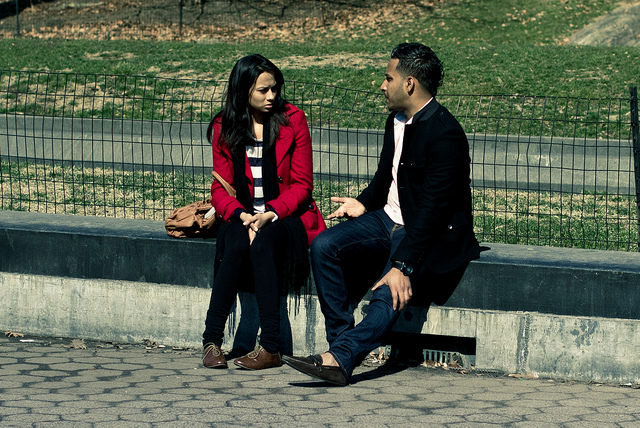
Most humans are incredibly ignorant when it comes to what love means in the context of love relationships. I was the same.
So, let’s get the record straight and define love in two words…
Love is support and challenge. That’s it.
It’s not just the support side—if you have a great partner, they support you, yes, but they also are willing to challenge you. And, they don’t even have to try—live with them long enough and their behavior will challenge you and test you unlike anything else.
Most people mistakenly confuse love for infatuation, which is a childlike and romantic notion of someone who supports our every move. Barf.
I hate to be the bearer of bad news, but love isn’t just the warm fuzzies you get when you “fall in love.” That feeling is called infatuation or dopamine and it’s one side of the coin. Dope-A-mine. My feeling of being on dope. Seriously.
If you want to get high, just go get some good Colorado weed and light up. That’s about the same feeling as what most people mistakenly call “falling in love.”
And, don’t get me wrong, I do enjoy that feeling—be it falling for someone or sparking one up. It’s a good one. Yet if we look at our own experience, the high doesn’t last.
When you “fall in love” you “get high” on the feelings when you and your “soul mate” connect. Then, after about six months to a year, you stop getting high off the feelings because this person now annoys you. Thus we naturally move from infatuation to resentment in our partnership with another person.
Because now your partner can’t hide their true colors. They annoy the sh*t out of you in small and big ways.
To make matters worse, most people have purchased a fantasy around marriage or long-term relationship—that it’s supposed to feel good all the time (our culture feeds us this idea and most people believe it and then then get annoyed when their imperfect human partner can’t live up to their fantasy).
So when resentment shows up, people run or make their partner wrong.
If you want to keep chasing the “falling in love” feeling, you’ll create a tail of resentment that follows you to get you back to the middle.
So, if we want to have less drama in our relationships, I recommend setting down the fantasy and the addiction to the drug-like feelings of a one-sided relationship (support), and instead embrace both sides of the relationship—which includes “challenge. This gets us to a whole-relationship and to the real definition of love.
Or course, some relationships can get too heavy on the “challenge” side. That relationship would need more support.
In other words, love embraces our infatuation and our resentment. The balance of accepting these two opposites is love. And, it’s a moment, a state. And, pretty soon, we swing to one of the poles.
People who rock inspiring relationships over time, are able to work with polarities skillfully. They don’t have a childish fantasy that the challenging feelings of the relationship will go away in favor of more supportive feelings.
The smart couple embraces support and challenge, both.
When we come to understand that challenge and support are two sides of the same coin we can dramatically increase our fulfillment in our long-term relationship.
Don’t buy it? Embrace more challenge and see where it takes you. My guess is that you will experience a deeper, more realistic experience of love.
~
Author: Jayson Gaddis
Editor: Katarina Tavčar
Photo: Flickr/Guian Bolisay










Read 10 comments and reply